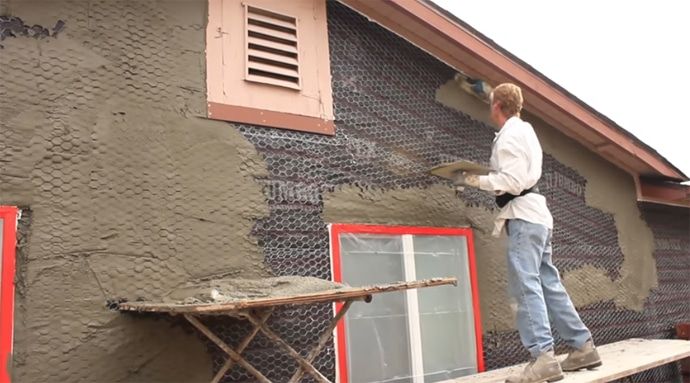Manufacturers of multicore flexible cables have a key function in today’s electrical and electronic systems. These cables are used to supply power and signals between equipment, control panels, instrumentation, and mobile equipment. Therefore, whichever multicore flexible cable manufacturer you choose will affect performance, reliability, and ultimately costs in the long run. In this article, we will discuss the things to look for, the ways manufacturers differ, and the considerations in finding the right partner for your technical and commercial needs.
What are multicore flexible cables and why they matter
Flexible multicore cables are composed of two or more insulated conductors grouped in a single sheath. They are constructed to withstand repeated movement, bending, and vibration. For this reason, flexible multicore cables are often used in applications where cable fatigue would cause failure. Furthermore, involving multiple conductors in a single assembly simplifies installation. This helps minimize clutter and reduce hazards in industrial, marine, and automation applications.
Expertise and capabilities of multicore flexible cables manufacturers
Top flexible multicore and multicore cable manufacturers utilize modern production technology accompanied by advanced engineering know-how to provide unmatched quality cables. Precision conductor stranding fabricates the conductor for maximized flexibility with minimum resistance. There may be multiple insulation compounds that improve temperature performance, oil resistance, and flame retardancy. A tough outer sheath protects the cable system from physical abrasion and harmful chemicals, and optional armoured cables enhance mechanical performance and help with electromagnetic shielded cables. These manufacturers have standardized their processes by utilizing in-house tooling, production extrusion lines, and progressive quality testing laboratories that can consistently produce quality cables from batch-to-batch. This experience enables flexibility in larger runs of custom-made prototypes or to scale a unique product into production without detracting from cable performance and reliability.
Materials, construction and performance features
The selection of materials affects cable performance. Copper is considered the de facto conductor in cables with its excellent conductivity and ductility. Nickel or silver-coated copper housing is commonly used for enhanced corrosion resistance in marine and humid applications. The cable insulation is typically PVC (Polyvinyl Chloride), PE (Polyethylene), XLPE (Cross-linked Polyethylene), or thermoplastic elastomers (TPE) and will have its own recommended temperature and flexibility. The sheath is typically polyurethane in high-flex electrical applications and neoprene which is oil and chemical resistant. Ultimately, protection (foil, braid or hybrid) is used for the purpose of preventing electromagnetic interference. When obtaining the material, it’s necessary to make sure that the manufacturer has the combination you desire.
Standards, certification and quality testing
Reliable, high-quality multinational flexible cable manufacturers observe internationally and regionally recognized standards including IEC, BS, and UL to ensure safety and performance. They routinely perform a series of rigorous quality tests, including continuity and conductor resistance tests, high voltage insulation resistance tests, and flame and smoke tests where applicable. Manufacturers of flexible cable types perform additional flex life and bend cycle tests to ensure the cable will perform durably over repeated movement. Also, the manufacturer will conduct additional tests for environmental aging and chemical resistance factors to ensure that the cable will be able to perform in challenging conditions for longer periods. Indicative testing reports and total traceability from raw materials to finished products helps provide confidence to customers as well as credibility to the manufacturer related to a stable quality product.
Customization and engineering support
The best multicore flexible cables manufacturers offer customization. They can accommodate different conductor size, insulation types, color coding, marking, and connector-ready terminations. Engineering support is helpful when you are designing cable assemblies for panels with limited space or fast robot movements. Manufacturers that provide prototyping and small run samples speed development and lessen the risks of integration.
Typical applications and industry focus
Due to their durability, flexibility, and reliability, multicore flexible cables are frequently used throughout various industries. They are used as control and servo cables in industrial automation, supplying power and connections to moving machines. Robotics applications depend on high-flex, torsion-stable cable assemblies to accommodate continued movement. Corrosion-resistant cables, mostly flame-resistant, are utilized for safety in marine and offshore conditions. For renewable energy-related industries, such as wind turbines, unique flexible conductors are utilized to accommodate continuous movements in nacelle systems and variable loads. Many industries, such as rail and electric transport rehabilitation industry, use vibration resistant cables. In terms of selecting a supplier, consider manufacturers who have validated experience in the industry.
Supply chain, lead-times and after-sales service.
A manufacturer’s supply chain capability impacts their consistency of delivery and pricing. Inquire about raw material sources, inventory buffers, and production capacity are the key points to examine. Also, determine typical lead times for standard products and custom orders, being sure to ask about after-sales support. The engineer’s ability to install products, access to replacement inventory, or length of warranty all positively impact operational downtime. Manufacturers who provide installation instructions and/or training represent additional value.
Cost versus total value
Cost is a crucial consideration in obtaining the cable, but the least expensive option is not necessarily the best value. It is better to think in terms of total cost of ownership. A longer expectant cable life, fewer failures, and easier installation methods can lead to lower lifetime costs. Look for warranty and test documentation, as well as the supplier’s history. More often than not, the best reliability and lowest maintenance costs come from slightly higher initial costs.
How to shortlist multicore flexible cables manufacturers
To effectively narrow potential multicore flexible cable manufacturers, start by checking their certifications and in-laboratory testing capabilities, ensuring their cable testing must conform to international standards. Request a product sample and test them in real-world performance to validate their quality claims. Checking references from previous clients who have used these products in similar applications will help you best assess responsibilities and industry experience. You will want assess each manufacturer’s specific ability to provide custom, quick prototypes, and flexible designs. Last, make sure to compare their warranty terms, technical support response time, and transportation reliability, since there is a significant relationship between these elements and long-term satisfaction and project outcomes.
Conclusion
When choosing multicore flexible cable manufacturers, technical requirements, quality requirements, and commercial terms must be balanced. Look for manufacturers that show tested engineering capability, thorough testing and quality standards, flexibility in customization, and reliability in their supply chains. This process will ensure proper performance for the cables and minimize risk when using these cables in critical electrical systems.


